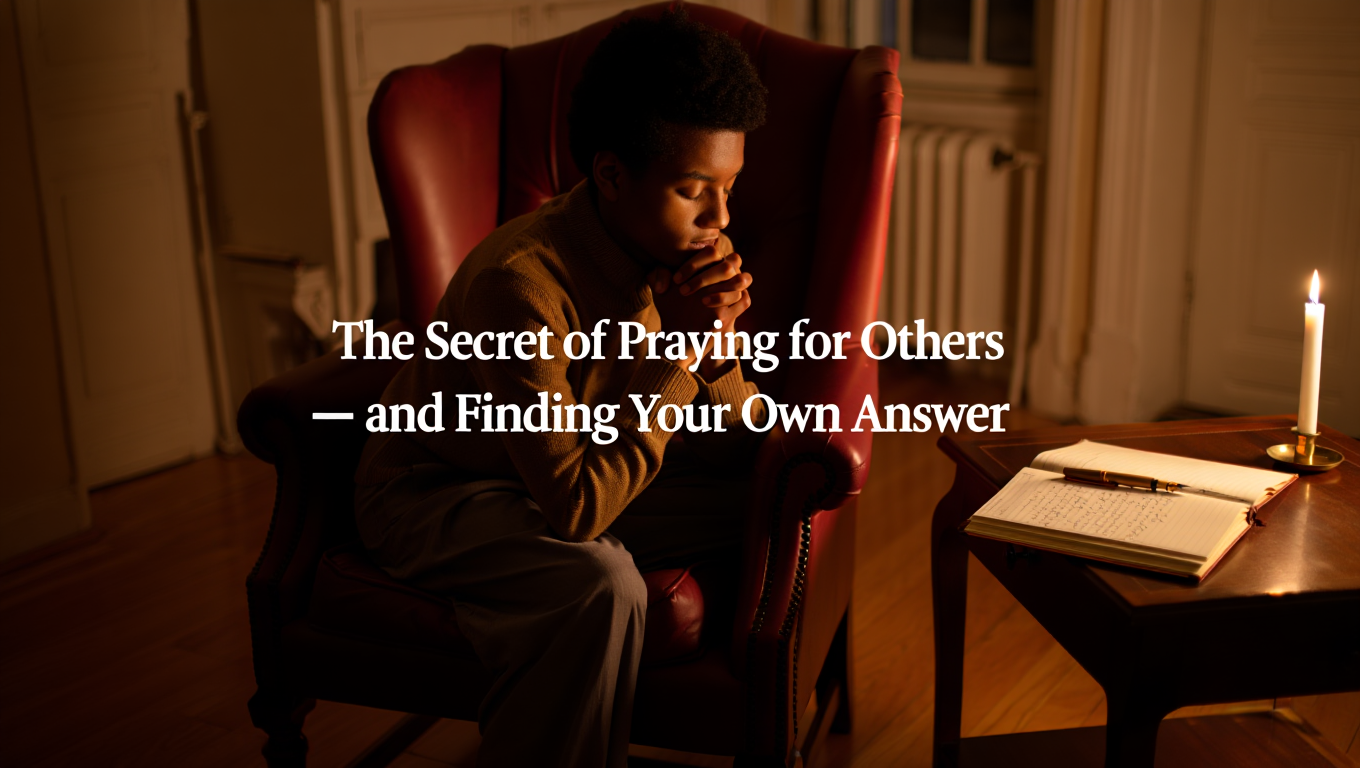There’s a powerful secret tucked away in our tradition, one that flips the way we normally think about prayer.
Most of us, when we pray, instinctively focus on what we lack: health, livelihood, peace, clarity, children, companionship. We come before God with our needs, our fears, our hopes. And that’s natural — prayer is a place to pour out the deepest desires of the heart.
But the sages reveal something astonishing: if you want something deeply for yourself, the most effective way to ask for it is… to pray for someone else.
The Talmud’s Secret
The Gemara in Bava Kama 92a teaches:
“Whoever prays on behalf of his friend, and he himself needs that same thing — he is answered first.”
Think about that. If I need healing, but instead of just focusing on my illness I pray with all my heart for someone else who is ill — the heavens open for me first.
The Talmud points to the story of Job as the example. Job’s suffering was immense, and yet the Torah tells us: “And the Lord turned the captivity of Job, when he prayed for his friends” (Job 42:10). His turning point came not when he pleaded for himself, but when he directed his prayers outward, for others.
Why Does This Work?
The commentators give us a glimpse into the mystery:
-
Rashi says it’s because God loves to see selflessness. When a person can push aside their own pain for a moment and sincerely cry out for another, it’s a sign of genuine love and faith.
-
Maharsha reminds us that Job’s redemption hinged on this very act — his personal breakthrough came from praying for his friends.
-
Rabbeinu Yonah explains that such a prayer rises higher, because it’s not just for “me” but for us — for the community, for the greater whole.
On a spiritual level, the Sefat Emet teaches that the Jewish people are like one body. To pray for another is, in essence, to heal yourself, because our souls are interconnected.
An Act of Chesed with the Lips
The Chafetz Chaim calls this “chesed through the mouth.” Just as giving charity is kindness through your hands, praying for someone else is kindness through your lips. It costs nothing — yet its power is boundless.
Bringing It Down to Earth
So how do we practice this?
-
If you’re struggling financially, take a moment to pray for another person who’s having a hard time making ends meet.
-
If you’re battling illness, let your prayer circle widen — whisper the names of others in need of healing.
-
If you long for children, remember those around you who share the same hope.
This doesn’t mean you shouldn’t pray for yourself — of course you should. But something extraordinary happens when we move beyond ourselves. The prayer becomes bigger, deeper, more whole. And in God’s economy, giving away blessing doesn’t deplete it — it multiplies it.
The Takeaway
When we pray for others, we align with the very essence of the Torah: “Love your neighbor as yourself.” We say to God, “I care about Your children as much as I care about myself.” And God, in His kindness, answers us first.
So the next time you feel that longing in your heart, pause. Think of another soul who needs that very same thing. Lift them up in your prayer. And trust that in giving to others, Heaven is already preparing to give back to you.







